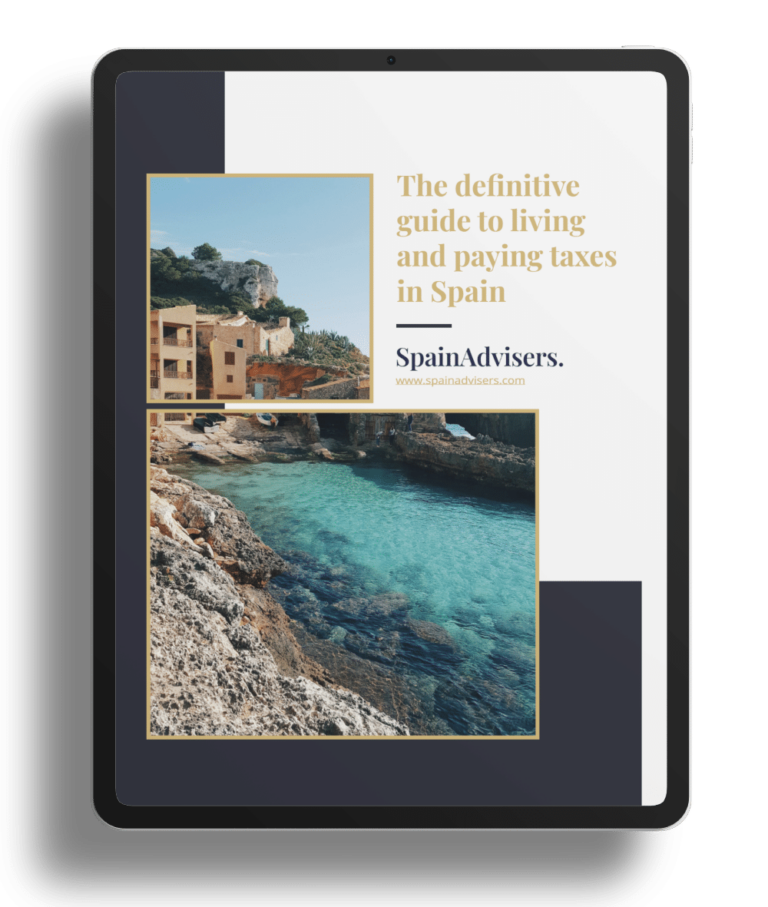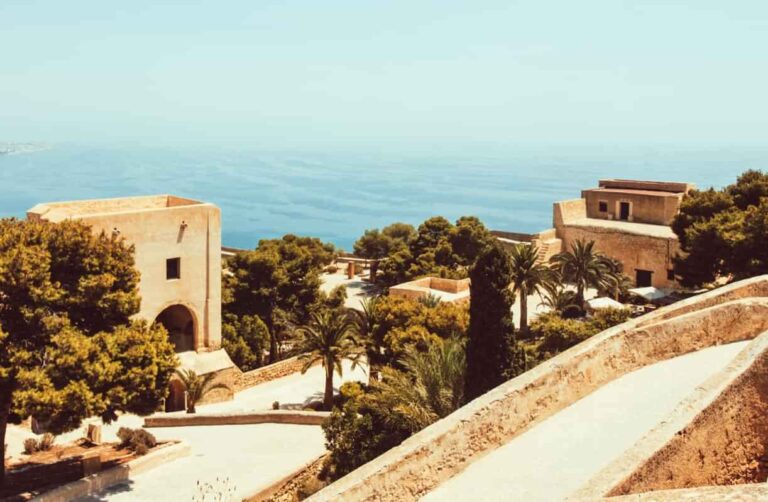According to the current data on the Spanish real estate sector, there is a significant “boom” in foreign purchases of properties in Spain: since 2009, foreign demand for housing in Spain has increased notably, being led by British buyers, closely followed by Germans and French.
It is true that Spain has many attractive reasons that make foreigners interested in buying properties in Spain. Among others, is its climate.
There are three typical cases in which a foreigner would buy a property in Spain.
Buying a property to reside
Part of the foreigners who buy property in Spain acquire it for employment reasons. Mainly, buyers who come to Spain, for this reason, tend to be from Morocco and Romania.
Once such foreigners get an undefined job, they tend to establish their residence in Spain as their working conditions are much better than those of their country of origin (work contract, timetable, better salary, etc.).
Also, as we will see below, many foreigners (non-EU citizens) may obtain their Spanish residence by buying a property in Spain, thanks to the popular Spanish Golden Visa.
Buying as an investment
Foreigners with a high level of purchasing power often opt to acquire properties in Spain as an investment.
It should be noted that due to the real estate economic crisis of 2008, property prices in Spain fell significantly. Thus, foreigners living in countries where the crisis did not affect as much as Spain, had the opportunity to buy properties in Spain at a more competitive price than they would pay in their country of origin.
Since then, prices have increased again in the main cities, but in other areas, real estate prices remain very moderate.
Also, Spain has always been considered a “tourist country”, so having several properties in cities in which there is high tourist traffic could generate high profits for foreign owners.
Buying a property for holidays
Finally, many foreigners buy properties in Spain as a second home to enjoy their holidays and, who knows, to live there in the future.
The climate, the quality of life, and the price of housing in Spain compared to their country of origin make foreigners choose to buy properties in Spain to enjoy during their free time.
In this respect, the Balearic Islands, the Valencian Community, and Andalusia are some of the regions where most foreigners tend to buy their second homes.
How can a foreigner buy property in Spain?
Any foreigner can purchase a property in Spanish territory without having to be a resident in Spain. However, before buying a property, foreigners are required to obtain a “Foreigner’s ID number” (NIE) issued by the Spanish Authorities.
The type of NIE to be requested depends on the country of origin of the foreigner who is going to buy a property in Spain.
If the purchaser is from the European Union, he can apply for two types of NIE.
Temporary NIE
This is requested by those EU citizens who are not going to reside in Spain but need the NIE to carry out certain formalities, such as buying a property.
In this case, the NIE shall be granted by submitting an EX-15 form, together with a copy of the passport, a description of the economic/professional/social reasons justifying the application, and proof of payment of the corresponding fee.
Permanent NIE
This is requested by those EU citizens who are going to reside in Spain for more than 3 months (i.e. foreigners who acquire a second home for holidays).
In this case, the NIE shall be granted by submitting the EX-18 form, together with a copy of the passport, a description of the economic/professional/social reasons justifying the application, and proof of payment of the corresponding fee.
And if the purchaser is from a non-EU country he can apply for another two types of NIE.
Non-Resident NIE
This is requested by non-EU citizens who have no intention of residing in Spain but need the NIE to carry out certain formalities, such as buying a property.
In this case, the NIE shall be granted by submitting the EX-15 form, together with a copy of the passport, a description of the economic/professional/social reasons justifying the application, and proof of payment of the corresponding fee.
The non-resident NIE expires after 3 months. If this period has elapsed, the foreigner may apply for its renewal.
Resident NIE (TIE)
This is requested by non-EU citizens who are going to reside in Spain for a period of more than 6 months. This is a residence card that includes the NIE.
In this case, the TIE shall be granted by submitting the EX-17 form, together with a recent color photo, a copy of the passport, and proof of payment of the corresponding fee.
In any of the above cases, the Spanish ID number may be applied for at the Spanish Consulate or Embassy in your country of origin, or at the Police Station of the Spanish city where you reside, work, or intend to buy a property.
Advantages of buying a property in Spain
Attractive property prices
The main advantage of buying a property in Spain for a foreigner is the price of the property, which is generally lower than in other first-world countries.
Unlike other EU and non-EU countries, the Spanish economy has taken longer to recover from the economic crisis that hit the real estate sector from 2008 onwards, so in comparison with the major EU and non-EU countries (Germany, United States, United Kingdom, France, etc.) the price of housing is considerably lower.
Moreover, it should be noted that citizens who reside and work in said countries generally have a higher salary, therefore they have greater purchasing power than a Spanish one.
Consequently, a foreign citizen with normal purchasing power could acquire a property in Spain in very good conditions, while perhaps in their country they couldn’t afford a house with the same characteristics.
Exceptional profits with tourist rental
It should also be noted that Spain is one of the great tourist destinations in Europe, due to its climate, its coastline, its history, etc., tourism is one of the strengths of its economy.
This has a direct effect on the real estate sector, in particular, on the rental of “tourist flats”.
Nowadays, the rental of tourist flats in Spain has grown exponentially, which attracts a great deal of real estate investment.
Note that in summer (from June to September), an average tourist flat in Spain located in a seaside area can be rented at an average price of €1,500/week. On the other hand, a tourist flat in one of the big Spanish cities (Madrid, Barcelona, Seville) can be rented at an average price of € 60-80 /day.
In this sense, Spain is not only interesting as a holiday destination, but also as an investment country. If you buy properties in Spain, you can achieve exceptional profits.
Getting a “Golden Visa” residence card
Last but not least, investing in Spain is an exceptional means for many non-EU citizens to obtain residence in the Spanish territory.
For this purpose, there is a special residence card called “Golden Visa” by virtue of which non-EU citizens can legally work and reside in Spain, provided that they acquire real estate exceeding €500,000.
This residence visa will grant you advantages such as being able to work and reside legally in Spain, even with your spouse and children.
The duration of the visa is 2 years, which may be extended for a further 5 years. At the end of the last year of the extension, the citizen will be able to obtain permanent residence in Spain.
Pitfalls of buying a property in Spain
The time period for buying a property
If you are keen to buy a property in Spain, you should take into account the time period it takes to acquire one.
Generally, considering the steps to be carried out both before and after the purchase, the time it takes to buy a property in Span may be between 3–12 months.
If you intend to buy a property, you will have to carry out at least the following steps (whose execution will require a certain period of time):
- Look for the property you wish to buy.
- Apply for and obtain an ID number in Spain (NIE).
- If applicable, formalize a reservation contract whereby the offer to buy the property is officially made to the seller.
- If the seller accepts the offer, you may be required to formalize a deposit contract in order to document the terms of the sale. Such a contract could involve the payment of a deposit as a condition for the purchase to go ahead.
The amount of the deposit depends on the purchase price of the property (normally 10% of the price, but it can be less).
- In case you need to finance your purchase, you will have to apply, maybe, to different bank entities for a mortgage loan.
- Once you have sufficient funds to buy the property, you will have to formalize a public deed of sale before a notary public in Spain.
- Finally, you will have to register the property in the Spanish Land Registry as a new owner.
Mortgage conditions
In general terms, foreigners who need a mortgage loan to buy a property in Spain should bear in mind the following:
- It is difficult to obtain a mortgage loan from a bank entity in the foreigner’s country of origin for the purchase of a property in a different country. The possible lack of information about properties in third countries (debts, conditions, etc.), together with the higher risk of non-payment (as the property is outside their scope), makes it difficult to obtain a mortgage. However, foreigners can obtain mortgages in Spanish banks or in foreign branches located in Spain.
- Mortgage conditions for foreigners are unfavorable in comparison with those offered to Spanish citizens.
Note that a Spanish citizen with a Spanish ID number and an undefined employment contract may obtain a mortgage loan up to 95% of the price, while a foreigner with a Spanish NIE can obtain up to 80%.
In the case of second homes, this percentage is similar for both Spanish citizens and foreigners, who can obtain a mortgage up to 60%-70% of the price of the acquisition.
Purchase taxes
For Spanish tax purposes, as we will see in the following section, the buying of a property in Spain results in the payment of several taxes.
And, not only for the purchase of the property, but also for the simple fact of being the owner of it, which obliges you to pay taxes during all the years in which you hold the property.
In addition, it is likely that the purchaser will have to assume other expenses (different from taxes), such as notary fees, land registry fees, management fees, appraisal fees (if a mortgage is required), insurance costs, etc.
Depending on the conditions in which the property is acquired (new or second-hand), the purchase will be subject to one of the following taxes:
Value Added Tax (“IVA”)
If a new property is purchased, the owner will be obliged to pay VAT, normally at a reduced rate of 10% on the price of the property.
However, if purchasing a property in the Canary Islands, a rate of 7% on the price of the property would apply.
Also, if a new property is purchased, in addition to VAT, the purchaser will have to pay stamp duty, which will vary between 0.4% and 1.5% of the price of the property, depending on the rate applicable in the Region where the property is located.
Please note that it will be the purchaser who will be obliged to pay the tax or, where applicable, the agency/lawyer hired to pay it on their behalf.
Transfer tax (“ITP”)
In case of buying a used or second-hand property, the owner will be obliged to pay transfer tax at the rate set by the Region in which the property is located (between 4% and 10%) on the reference value assigned by the Cadastral entity to that property. In Andalusia, the rate is 7%, and in Madrid, it’s 6%. However, in Catalonia and Valencia, it’s 10%.
However, depending on the Region, there is the possibility of applying reduced rates if certain conditions are fulfilled according to the age and economic capacity of the purchaser.
Also, here it will be the purchaser who will be obliged to pay the tax.
Mortgage taxes
In the event that the buyer needs a mortgage to acquire a property, the mortgage loan must be registered in the Land Registry. This registration requires the payment of the Stamp duty.
However, since 2018, this tax must be paid by the bank, not by the buyer of the property.
Taxes on real estate possession
Non-resident income tax
If the property acquired is not going to be used for any purpose (rental, main residence), but is going to be used as a second or holiday home of the owner, the owner would be obliged to declare annually as real estate income between 1.1% and 2% of the cadastral value of the property, which will be taxed at 19% if the owner is an EU citizen or at 24% for the rest of taxpayers.
For example, if the cadastral value of a property purchased by a Canadian is €100,000 and a rate of 1.1% applies, the owner will have to impute an income of €1,100, for which he will pay a tax of €264 (24% for €1,100).
Please note that the above does not apply if the property is purchased in the Basque Country or Navarre, which has its own tax system.
Property Tax
The local tax collected by the local councils of the place in which the property is located must be paid on an annual basis simply because you are the owner/owner of a property in Spain.
The amount to be paid depends on the place in which the property is located, the nature of the property, and its cadastral value.
Capital gains tax
Finally, note that Spanish properties owned by a foreigner shall be subject to capital gains tax. However, if the value of your properties in Spain does not exceed €700,000 the owners would not oblige to pay this capital gains tax.
Other questions to consider
Can I buy it with cash or Bitcoin?
If you are considering buying a property in cash, unfortunately, it is not possible in Spain.
The highest amount that can be paid in cash by a foreigner in Spain is €15,000 so if you have the money to buy the property you will be obliged to make the payment by a bank transfer.
Regarding the possibility of buying a property with bitcoin, although it is an incipient market, it is completely legal as long as there is an agreement between the seller and the buyer to use bitcoin as the currency.
In fact, there are already real estate agencies in Spain that accept bitcoin as the currency.
As for taxation, note that the fact of paying with bitcoin would not imply a change in the taxation of the transaction, so the above-mentioned would apply.
Why can’t I buy with a foreign mortgage?
In principle, as exposed above, it is difficult to buy a property in Spain through a mortgage obtained in a foreign country as foreign bank entities hardly ever grant a mortgage loan to buy a property in a country outside their scope.
However, foreigners shall obtain a mortgage loan in branches of foreign bank entities located in Spain, provided that this loan is linked to said branch (not to the bank on which it depends).
In any case, any foreigner with a Spanish NIE can obtain a mortgage loan in any Spanish ban entity.
Can brits buy after Brexit?
Brits may continue to buy properties in Spain under the same conditions as before Brexit.
The only significant difference would be in the case of non-resident income tax, in which incomes would be taxed at a 24% rate instead of the 19% rate that applies to EU foreigners.
Where should I start?
If you are interested in investing in real estate in Spain, the SpainAdvisers team can help you.
Not only can our team of specialized foreign investment lawyers help you with all the paperwork, but we can also put you in touch with real estate agents who will help you find the house of your dreams.
You can contact us through the contact form or by sending an email to [email protected].
Also, if you are considering changing your residence to reduce your tax contributions, we recommend reading the report “The definitive guide to living and paying taxes in Spain”, available for free below.



 All communications are encrypted and will be treated with absolute confidentiality. Your data will never be shared with third parties.
All communications are encrypted and will be treated with absolute confidentiality. Your data will never be shared with third parties. 


